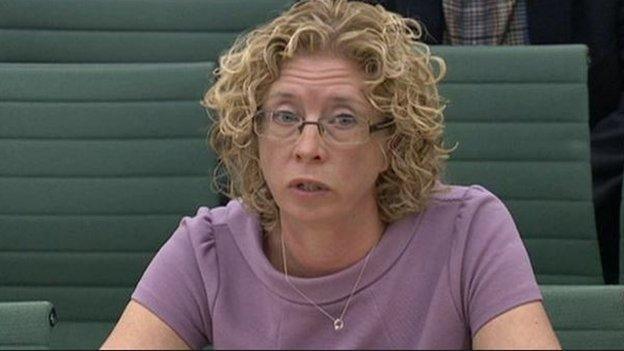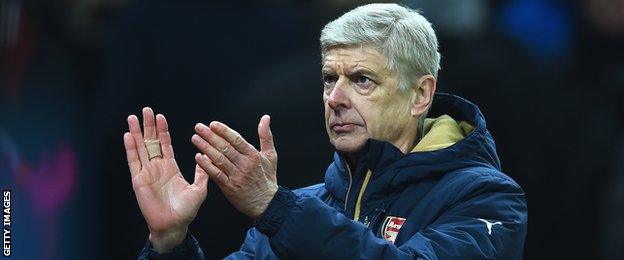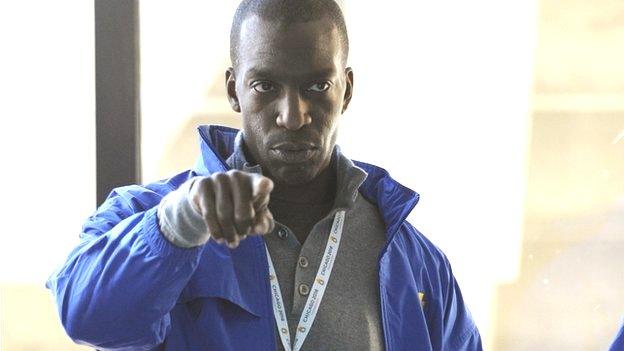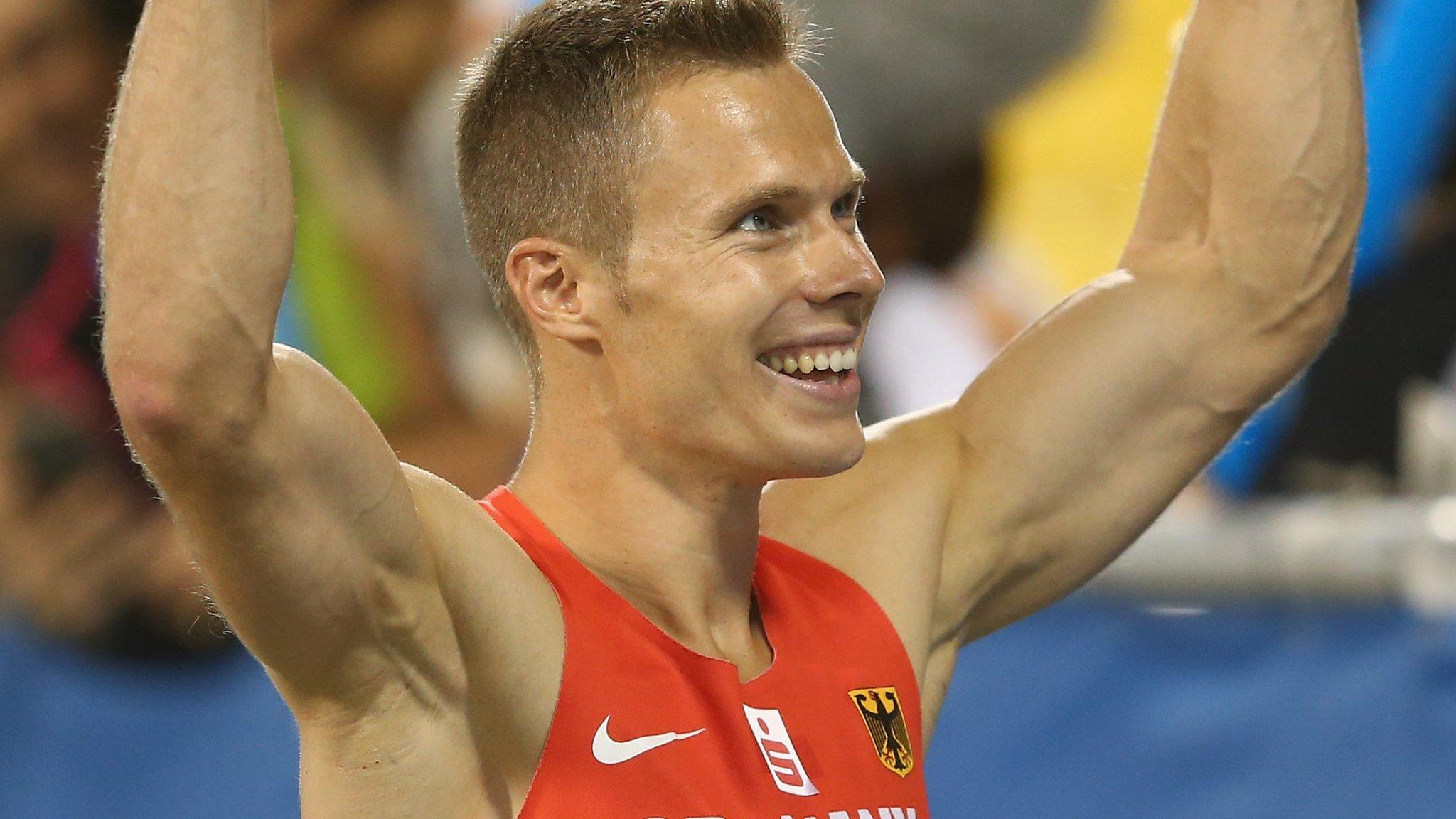Doping in football: Ukad would 'value' Arsene Wenger talks
- Published

UK Anti-Doping chief executive Nicole Sapstead believes football is at risk from doping
The chief of UK Anti-Doping would "value the opportunity" to talk to Arsenal boss Arsene Wenger about his comments on doping in football.
Wenger spoke out on the topic last year, saying he believed football was not immune to doping issues.
In an interview with the BBC, Nicole Sapstead also revealed Ukad was looking at helping Russia's anti-doping agency to run testing programmes.
The move comes in the wake of last year's doping scandal in athletics.
Russia is currently banned from all athletics competitions following accusations of widespread doping.
'Football is at risk'

Arsene Wenger said he wanted "deeper, better tests" for drugs in football
Wenger, the longest-serving manager in the Premier League, has long been an advocate of advances in drug testing in football.
In November, the Frenchman criticised Uefa's drug regulations after Dinamo Zagreb's Arijan Ademi was banned for four years for failing a test following his side's Champions League win over Arsenal in September. Wenger was upset that the result stood and Dinamo were not expelled from the competition.
Ukad chief Sapstead said she would welcome a meeting with Wenger to discuss the subject and admitted football could be at risk of doping problems.
"When you're looking at a sport like football that commands the sort of salaries that the players can command, its fanbase, its ticket sales, its broadcasting rights - if that isn't a risk then I don't know what is, notwithstanding the physical demands of the sport itself.
"Add that into a nice big mix and you've got everything pointing to a doping issue."
Ukad enters Rusada talks
Russia was banned from international athletics competition in November after an independent commission established by the World Anti-Doping Agency (Wada) examined claims of widespread doping, cover-ups and and extortion.
At the time, Ukad said it would help Wada carry out reforms in Russia, and Sapstead confirmed contractual negotiations with the Russian anti-doping agency (Rusada) were now taking place.
But she warned that Ukad will have to weigh up the "the benefits and risks" of taking on such a role.
Sapstead, who has been Ukad chief executive for a year, has called on athletes to speak out and report fellow competitors if they suspect they are doping.
"You have a duty to yourself and to your sport to speak up," said Sapstead. "The very people who can help us are those who are competing."
Sapstead added that governing bodies should "stand up and be accountable" over doping issues.
Her comments come after a further Wada report suggested "corruption was embedded" within the International Athletics Association Federation.
"Stop being naive and arrogant and thinking this is not happening within your sport because you can bet it is," she added.
"The spotlight is on anti-doping and the importance of investing in this."
Wada, which welcomed Ukad's efforts to help Rusada, said it would also be giving assistance and added it was looking to appoint two "international experts" to oversee Rusada's efforts to regain trust.
Wada report: Three things learned from doping scandal
- Published19 January 2016

- Published19 January 2016

- Published8 February 2019
